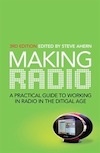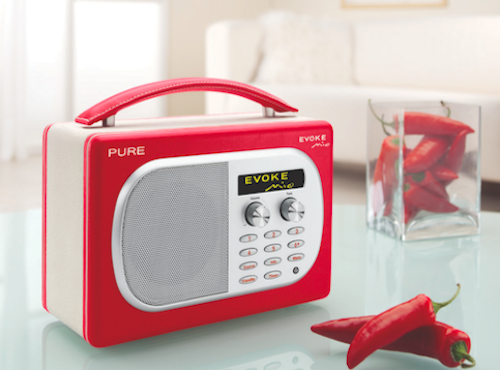Digital Radio is not the thing. It is one more thing. Opinion from Peter Saxon. Last Friday while the cream of Australian radio talent was on display in each major capital to celebrate the third anniversary of the launch of DAB+, an anonymous ‘radio insider’ was busy writing a piece for Crikey designed to rain on the digital parade.
You can read the whole thing here. Let’s start with ‘radio insider’s’ initial premise: Rather than being the industry’s saviour, DAB+ is already yesterday’s news.
DAB+ was never seen as radio’s ‘saviour’. Radio doesn’t need saving. It is proving by far the most resilient among the main media, even in this economic climate.
Commercial radio was offered a ‘use it or lose it’ ultimatum by the government of the day – either populate the digital band yourselves or we’ll open it up to new players. In the immortal words of Don Corleone, “It was an offer too good to refuse.”
The ABC had even less choice with the Federal Government mandating that they develop digital radio services within a budget that was earmarked for the job. See Kate Dundas’ response to ‘radio insider.’
With over 800,000 sets already sold, and around a million listeners a week, digital radio has surpassed most people’s expectations. By any measure it already represents a significant chunk of listeners and growing fast.
Still, let us not overstate it’s penetration. Digital radio’ is not the thing. It is one more thing. And a good thing it is too.
The “radio insider’ says: The newer kid on the block is internet radio, and it’s eating DAB+’s lunch. Its two big advantages are that it’s available almost everywhere, and you can get it on the gadget almost everybody carries with them: their smartphone.
With great respect (or at least all the respect that one can muster for an anonymous ‘radio insider’) he or she seems to have their argument upside down. Radio already enjoys all the ‘advantages’ of the web and is available through apps, competing head to head with other radio-like services. It is radio that has a clear advantage over the others because it has access to their platforms but they don’t have access to DAB+ or traditional AM/FM. Radio has that all to itself, along with the immense audience that it commands, and the ability to promote its brands to more effectively compete with those other services, online and on mobiles.
Our ‘radio insider’ then goes to some length explaining all the great listening choices from around the world that are now available to listeners through the internet.
But then, having said all of that, curiously, the very last paragraph of ‘radio insider’s’ diatribe then debunks his/her own argument: The ABC and the commercial networks should be taking the fight directly to the increasingly global competition by continuing to invest in great local talent, and creating better apps and other products that keep smartphone listeners glued to their brands.”
Couldn’t agree more. But unless I’m missing something, that’s exactly what Australian radio is doing.
If there is better local talent out there than Hughesy & Kate, Kyle & Jackie O, Ray Hadley, Adam Spencer, Neil Mitchell, Red Symons, The Grill Team, The Big Breakfast, The Big Couch or (insert your favourite here) then they’d be on air already at one of those stations that were out among the people last Friday morning. What’s more, they would simultaneously be on AM or FM, DAB+, online and on your smart phone or any other platform that supports audio.
As far as I am aware there’s not one internet based station that boasts any real personality based format.
I have previously argued that radio-like cloud-based services such as Spotify, Rdio and Pandora are no more than very sophisticated versions of car cassette players or the later CD stacker. As far back as I can remember, there were times when you wanted to listen to your own music and times when you wanted to listen to radio – even though it’s music radio, it’s not the same thing.
As for the suggestion that people will bypass Australia and listen to stations from all over the world… really? Perhaps SBS might see its audience of expat Hungarians erode when they discover they can tune in direct to a station in Budapest. Otherwise, why would you – even if Google does strip local ads in?
In his book, Making Radio: A Practical Guide to Working in Radio in the Digital Age, my co-editor Steve Ahern wrote:
 The Radio 2.0 world is more about content than the transmission platform. The phrases ‘platform neutral’ and ‘platform agnostic’ are often used to help broadcasters see beyond the old idea of a single transmission path, to grasp the fact that the business model for radio has evolved.
The Radio 2.0 world is more about content than the transmission platform. The phrases ‘platform neutral’ and ‘platform agnostic’ are often used to help broadcasters see beyond the old idea of a single transmission path, to grasp the fact that the business model for radio has evolved.
To survive in the Radio 2.0 world, where there is more competition than ever, will require radio broadcasting companies to rethink their business plans, going beyond the concept of being a ‘radio’ business to describing themselves in terms of the content they produce.
The industry leaders I talk to are under no illusion that radio, like every business in this rapidly changing world, must undergo change and adapt to the digital age.
Despite the fact that smart phones all possess still and movie cameras built in, there are still plenty of people buying purpose built equipment. And while, no doubt, some radio listeners will migrate to the web, doing some or all of their listening online, there will be some of those and many others who will still want a stand alone radio in the bathroom, kitchen or bedroom where with a push of one button they can hear their favourite broadcaster talking about their city and their country.
If that holds true, more and more people will eventually replace their analogue sets with digital. It could take 20 years, but digital will become the stand alone platform of choice.

Peter Saxon

